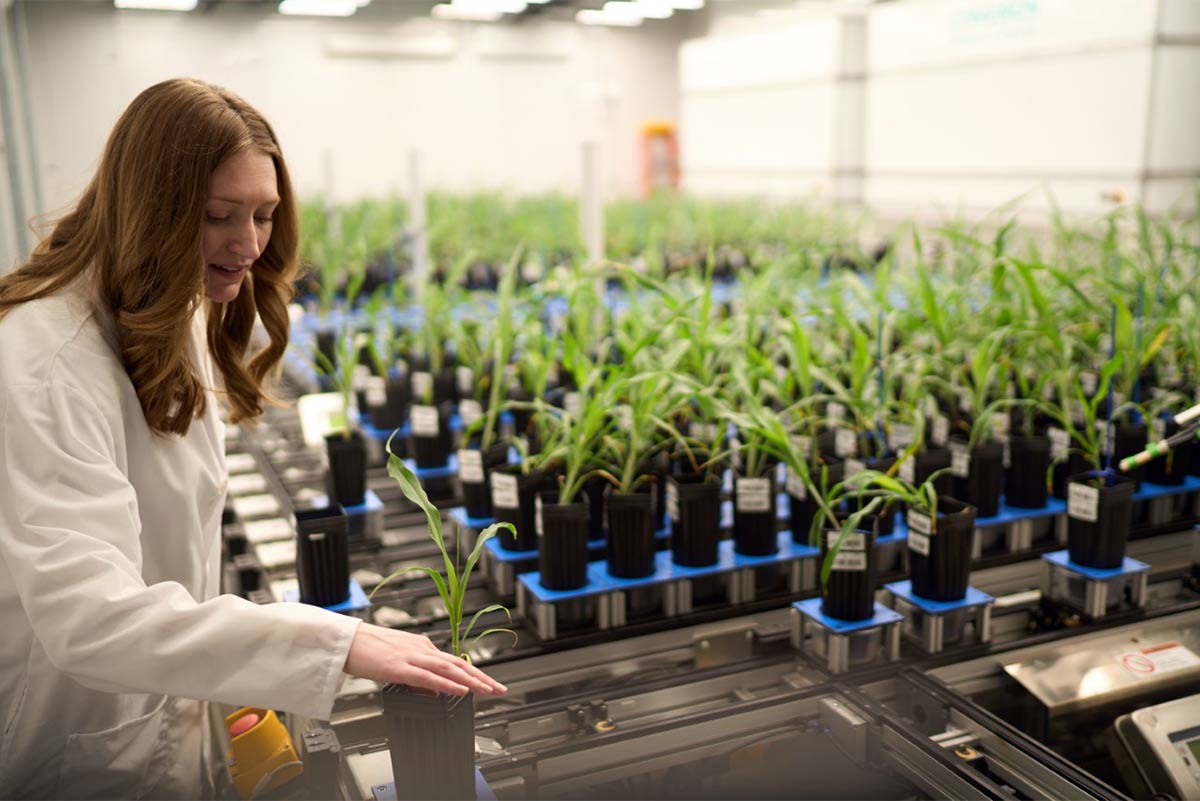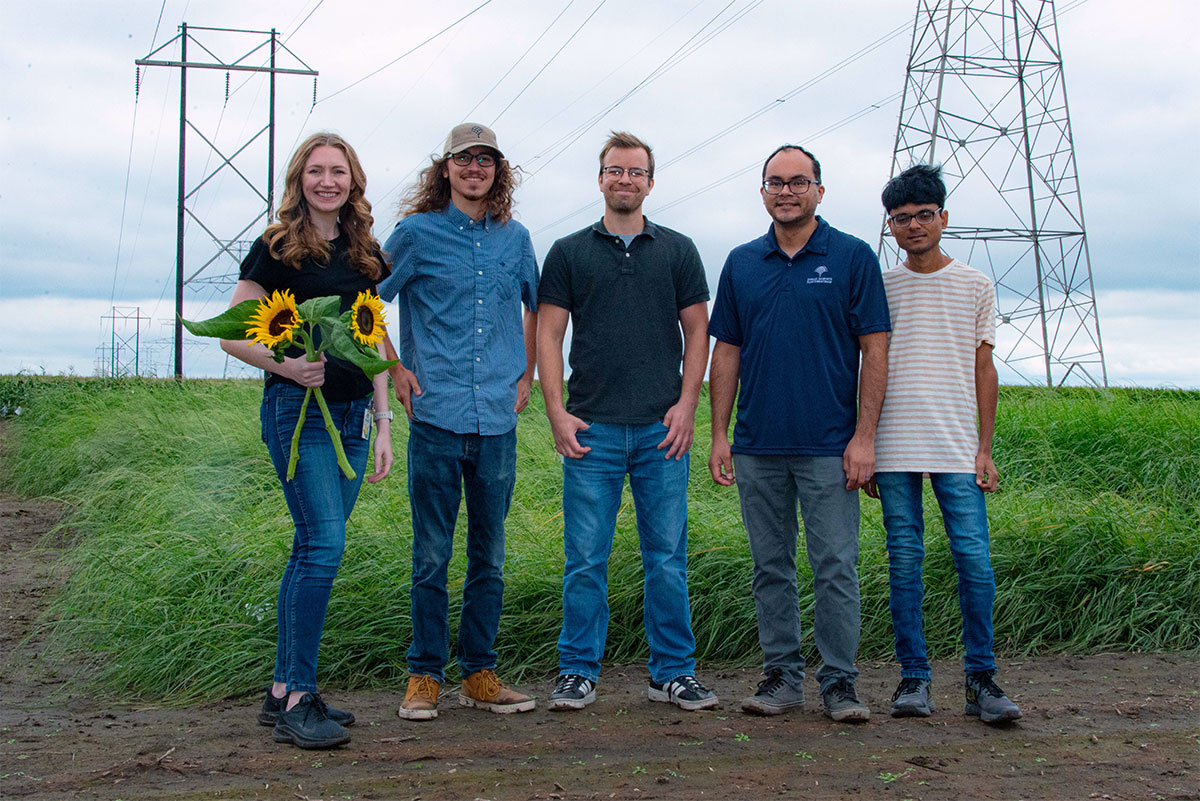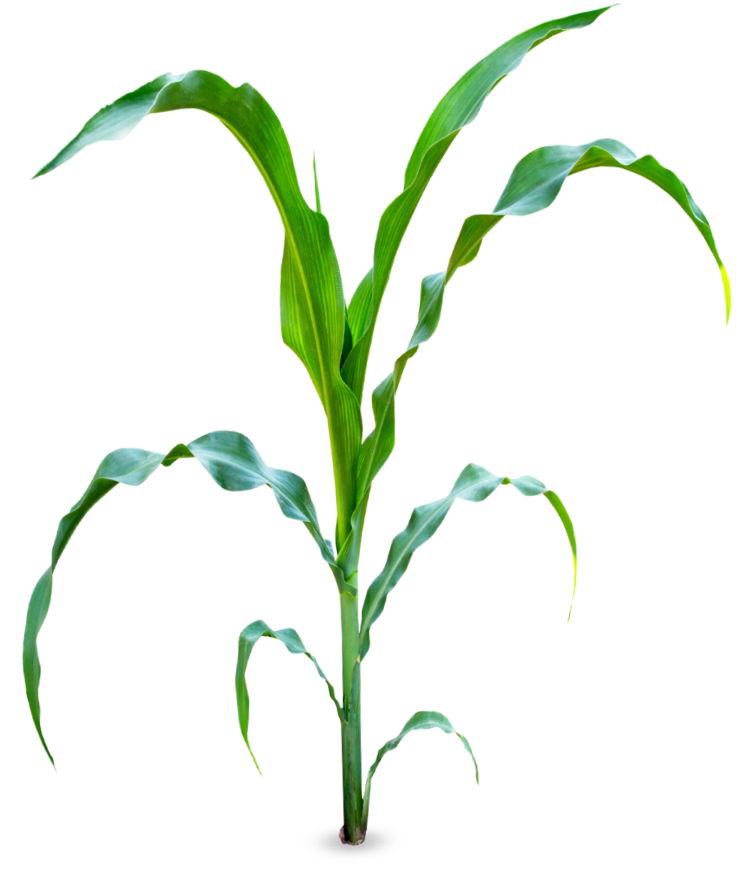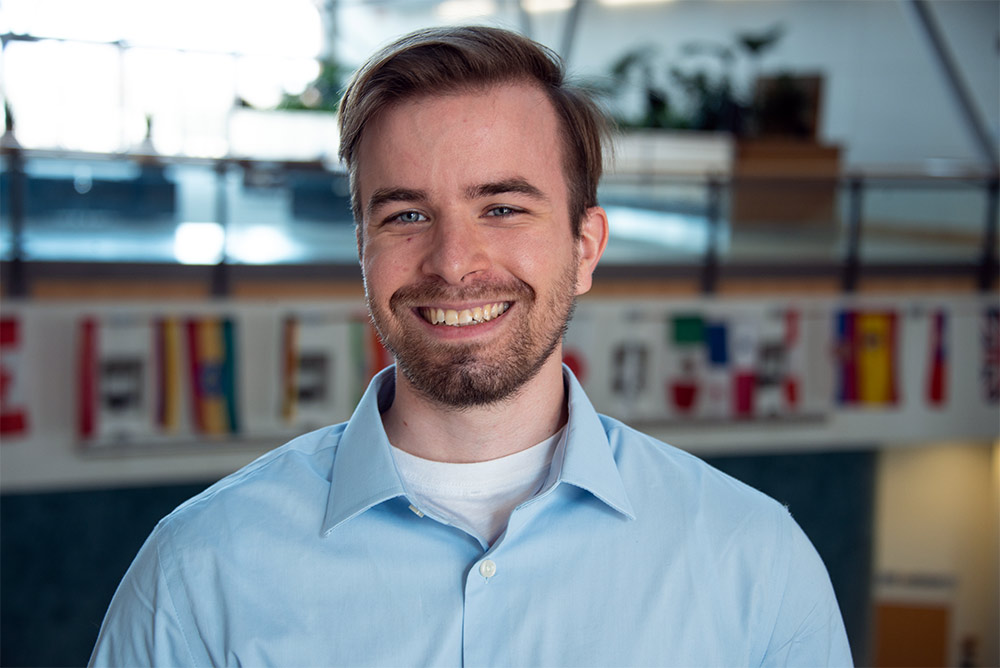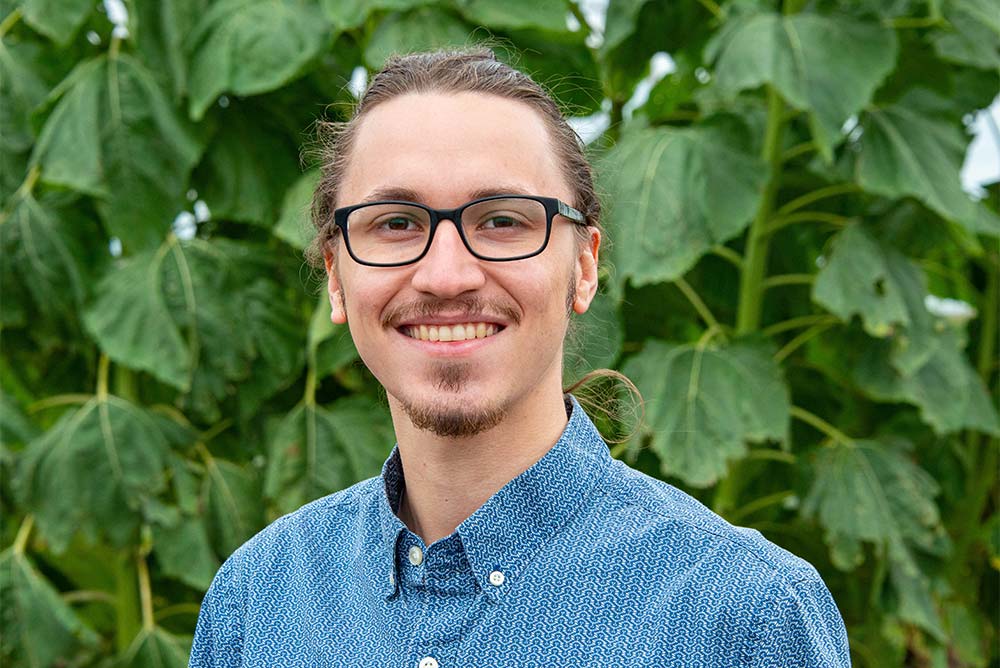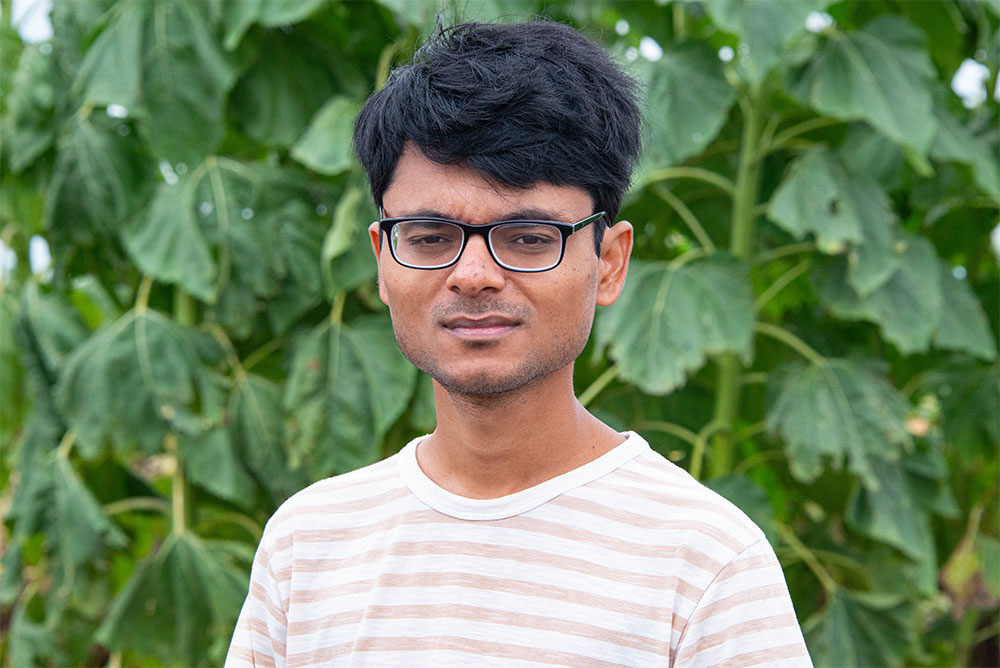Scientist at Birth
Katie Murphy can’t remember a time when she didn’t love science. Her favorite book growing up was Chemical Chaos, a comic book packed with outrageous, colorful cartoons about chemistry. In high school, she had an inspiring science teacher named Mr. Massey. “He made me into a chemist,” Katie says, “and I knew then that I wanted to be a scientist.” Her high school bedroom was brimming with houseplants, but as she headed off to college, she intended to pursue a career in chemistry. Her love for plants was still waiting beneath the surface.
The Corn Queen
It was Katie’s undergraduate biology professor Dr. Virginia Walbot who set her on the career path she’s still on today. “Ginny told me that she would teach me everything I needed to know about corn, and I never looked back,” Katie says. She became so excited about her research that her students started to call her the Corn Queen. Both her nickname and her excitement stuck. “I found that plants were better chemists than I could ever be, and that corn presented so many interesting scientific questions that I would stay busy for a lifetime.” She realized that studying corn meant being a part of something bigger.
For Katie, studying plants has presented the opportunity to find answers to some of humanity’s most pressing questions: How can we feed the world as the population grows while preserving natural resources?
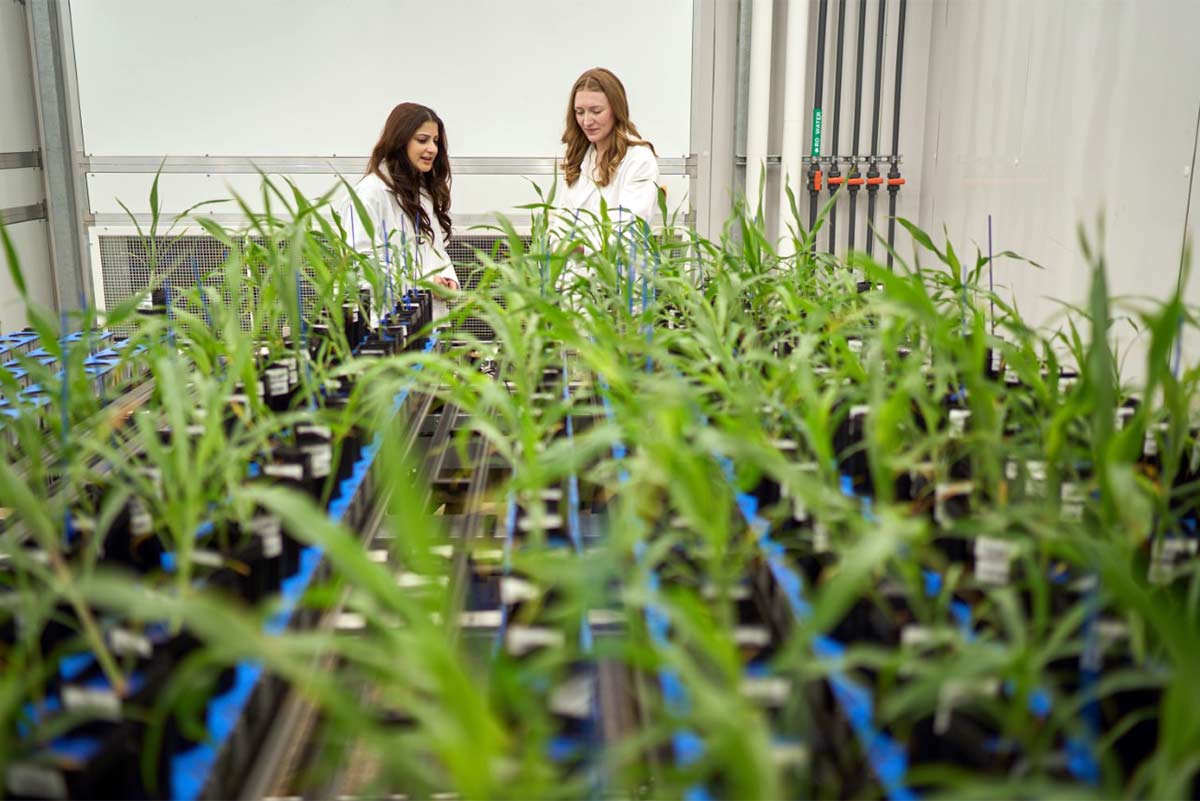
Katie leads the Danforth Center’s Phenotyping Core Facility to study how corn responds to heat stress. In collaboration with Malia Gehan and Doug Allen, she is working to understand how corn plants can be equipped to grow in warmer environments. “Plant science research has always given me purpose—the opportunity to use science to feed the world and help the environment,” Katie says. “While my fascination with the scientific mysteries of plants gets me out of bed in the morning, it’s the purpose-driven questions that push me through the hard days in the lab.”
The Future of Food
Katie is the director of the Phenotyping Core Facility at the Danforth Center, which houses state-of-the-art technology for understanding how plants respond to a variety of conditions. When the Bellwether Foundation Facility was first built in 2012, it was the first of its kind to automatically weigh, water, and take images of a thousand plants per day. Using this technology, Katie and her colleagues can determine things like which corn varieties grow best under heat stress or drought conditions. From there, they investigate what makes those varieties more resilient, bringing them one step closer to understanding how we can equip plants to be better able to withstand increasingly harsh environments.
“I love that every day my job is a venture into the unknown,” Katie says. “When I look at a plant in front of me, I see so many mysteries of nature we don’t yet understand, and I am an explorer trying to figure it all out.”
As director of the Phenotyping Core Facility, Katie’s job doesn’t end with her own research. She works alongside other scientists at the Danforth Center and at plant research startup companies to answer the questions that they have in their labs, too. Katie assists these researchers in designing high-throughput experiments, analyzing data, and combining expertise—by joining forces, they can accomplish things that neither of them could do alone.
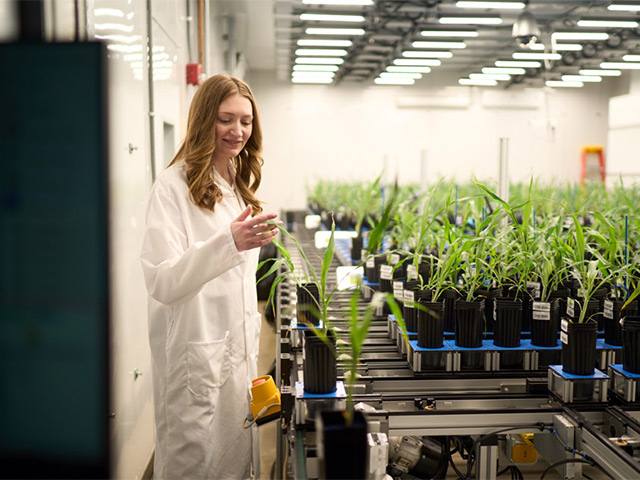
Spreading the Excitement
Sharing her expertise with others is something that is important to Katie, even beyond the world of fellow scientists. Everyone is affected by plant science, whether they know it or not. “Do you care about having enough food to eat? Do you care about our air, water, and land staying healthy? Then you care about plant science!” Katie says. “If people see and understand what we do at the Danforth Center, I know they will look at their plate of food differently and maybe even want to become a plant scientist one day.”
Raised in a family of non-scientists, Katie credits her loved ones’ interest in her research as a major influence on her ability to communicate complex concepts to the public. She’s put that skill to work by creating the popular TikTok and Instagram account @Real_Time_Science, where she posts videos following her team’s research as it unfolds. Sharing her work on social media has been a great opportunity to demystify the world of science by meeting people where they already are—on their phones—and showing the day to day of what goes into plant research.
Katie hopes her outreach will inspire future generations of scientists. “I didn’t know any female scientists growing up,” she says, “so being able to put a face and role model to science for young people, especially young women, is important to me.” To Katie, making these connections is even more significant than the work she does while she is in the lab. “I am only one person, but the lasting ripple effects of mentorship mean there are even more plant science enthusiasts out in the world,” she says. “While my research is important and exciting, it’s knowing that I have helped develop and inspire other young scientists that makes me the most proud.”
